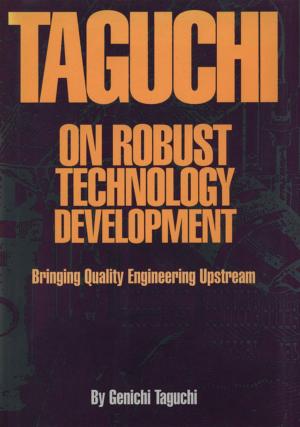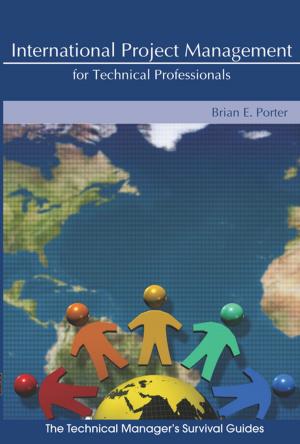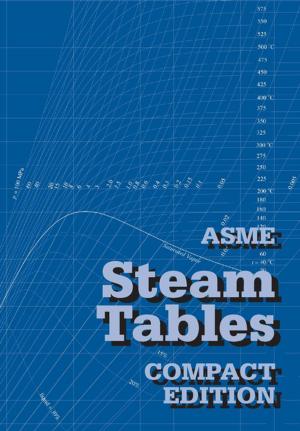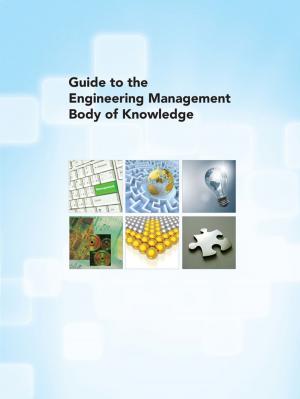Thriving in the 21st Century Economy Transformational Skills for Technical Professionals
Nonfiction, Science & Nature, Technology, Technical & Manufacturing Industries & Trades, Engineering| Author: | K. Subramanian | ISBN: | 9780791861486 |
| Publisher: | American Society of Mechanical Engineers | Publication: | May 1, 2013 |
| Imprint: | American Society of Mechanical Engineers | Language: | English |
| Author: | K. Subramanian |
| ISBN: | 9780791861486 |
| Publisher: | American Society of Mechanical Engineers |
| Publication: | May 1, 2013 |
| Imprint: | American Society of Mechanical Engineers |
| Language: | English |
This book is very timely for understanding the link between education and employment in a binary economy. The authors provide a lucid framework for technical professionals to become T-shaped systems thinkers, who can get in-depth as well as work on a wider bandwidth, as required --Dr. James C. Spohrer, Director, IBM University Programs World-Wide (IBM UP) Innovation Champion, IBM Almaden Research Center, San Jose, CA, USA A practical road map for both professionals and policymakers committed to developing a critical skills infrastructure for the 21st Century. --Dr. Leonard Schlesinger, President, Babson College, Wellesley, MA, USA This powerful book has two interwoven parts. The first part tells us the story of what has happened to STEM work in the U.S. economy over the past few decades of relentless globalization and digitization of information. Refreshingly the authors stop short of making a prediction. Instead, they turn their attention to what can be done to energize and transform the work of STEM professionals to benefit the global economy as well as their own jobs and careers. The book is also full of insights for public policy officials, higher education leaders, and corporate training heads. It is a must read for senior managers of STEM companies and organizations. --Prof. V. Kasturi Rangan, Malcolm P. McNair Professor of Marketing, Harvard Business School, Cambridge, MA, USA This is an innovative and motivational book for STEM professionals participating in today's global knowledge economy. It urges them to establish a personal strategic plan and to develop transformational skills as well as academic knowledge and industry-specific skills. To be rewarded in today's marketplace the authors point out that STEM professional must be nimble, entrepreneurial and innovative, be a source of new solutions, but also take personal responsibility for continually developing those skills throughout their career. --Prof. A. Galip Ulsoy, C.D. Mote Jr. Distinguished University Professor of Mechanical Engineering and the W.C. Ford Professor of Manufacturing, University of Michigan, Ann Arbor, MI, USA In this book, the authors advise an alternative approach to career development for science, technology, engineering, and mathematics (STEM) professionals. The authors believe that self-help is the best help and hence technical professionals should take ownership of their future in a strategic way -- just as businesses and corporations have to rely on a strategic approach for long-term survival and success. The authors incorporate concepts of systems thinking, as well as global knowledge, to develop strategic solutions to identified industry needs.
This book is very timely for understanding the link between education and employment in a binary economy. The authors provide a lucid framework for technical professionals to become T-shaped systems thinkers, who can get in-depth as well as work on a wider bandwidth, as required --Dr. James C. Spohrer, Director, IBM University Programs World-Wide (IBM UP) Innovation Champion, IBM Almaden Research Center, San Jose, CA, USA A practical road map for both professionals and policymakers committed to developing a critical skills infrastructure for the 21st Century. --Dr. Leonard Schlesinger, President, Babson College, Wellesley, MA, USA This powerful book has two interwoven parts. The first part tells us the story of what has happened to STEM work in the U.S. economy over the past few decades of relentless globalization and digitization of information. Refreshingly the authors stop short of making a prediction. Instead, they turn their attention to what can be done to energize and transform the work of STEM professionals to benefit the global economy as well as their own jobs and careers. The book is also full of insights for public policy officials, higher education leaders, and corporate training heads. It is a must read for senior managers of STEM companies and organizations. --Prof. V. Kasturi Rangan, Malcolm P. McNair Professor of Marketing, Harvard Business School, Cambridge, MA, USA This is an innovative and motivational book for STEM professionals participating in today's global knowledge economy. It urges them to establish a personal strategic plan and to develop transformational skills as well as academic knowledge and industry-specific skills. To be rewarded in today's marketplace the authors point out that STEM professional must be nimble, entrepreneurial and innovative, be a source of new solutions, but also take personal responsibility for continually developing those skills throughout their career. --Prof. A. Galip Ulsoy, C.D. Mote Jr. Distinguished University Professor of Mechanical Engineering and the W.C. Ford Professor of Manufacturing, University of Michigan, Ann Arbor, MI, USA In this book, the authors advise an alternative approach to career development for science, technology, engineering, and mathematics (STEM) professionals. The authors believe that self-help is the best help and hence technical professionals should take ownership of their future in a strategic way -- just as businesses and corporations have to rely on a strategic approach for long-term survival and success. The authors incorporate concepts of systems thinking, as well as global knowledge, to develop strategic solutions to identified industry needs.















